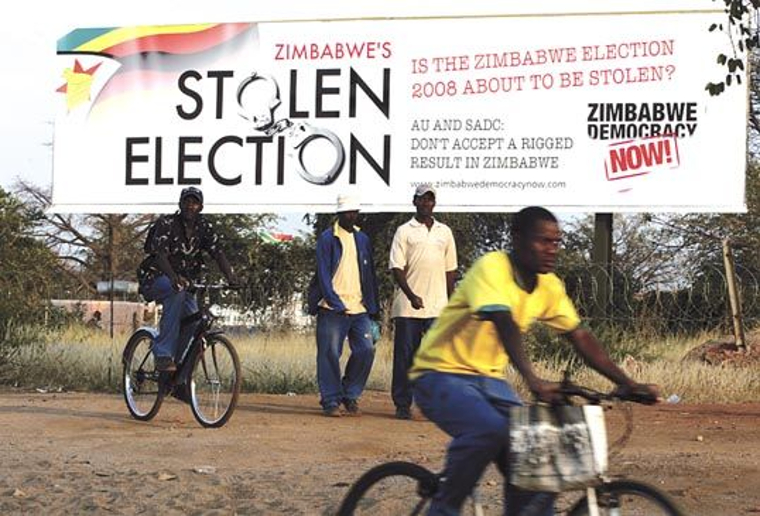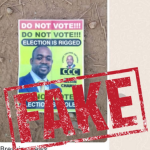 Zimbabwe’s much awaited elections will be over by the end of today. The nation will, however, have to wait for the results. Citizens Coalition for Change leader Nelson Chamisa says he will announce the results tomorrow. He will not be rigged out this time, he said, adding that any result where he is not the winner is fake.
Zimbabwe’s much awaited elections will be over by the end of today. The nation will, however, have to wait for the results. Citizens Coalition for Change leader Nelson Chamisa says he will announce the results tomorrow. He will not be rigged out this time, he said, adding that any result where he is not the winner is fake.
Chamisa, who seems to be reading from former United States President Donald Trump’s script, said to stop the Zimbabwe African National Union-Patriotic Front from rigging this election, he is going to deploy agents at all 12 374 polling stations to make sure that his party accounts for every vote. But this may not be as simple as Chamisa thinks because it has been tried before, and failed.
In 2008, two parallel voting counting centres were set up but both failed to come up with concrete proof that Movement for Democratic Change leader Morgan Tsvagirai had won the elections. The Zimbabwe Electoral Commission said Tsvangirai had polled more votes than then President Robert Mugabe but these were not enough for an outright win.
In Zimbabwe a presidential candidate has to win 50% of the votes plus one to be declared winner. Otherwise there has to be a run-off between the two leading candidates. In today’s elections, the run-off, if it becomes necessary, has been set on 2 October.
The Zimbabwe Election Supervisory Network conducted parallel vote counting with support from the National Democratic Institute which was funded by the United States Agency for International Development (USAID), according to diplomatic cables released by Wikileaks in August 2011. ZESN had reservations about its results because the MDC was carrying out its own parallel count funded by Zimbabwe businessman Strive Masiyiwa. Its nerve centre was in Johannesburg.
Continued next page
MDC advisor, Kathi Walters, who said she had worked with the party for eight years, admitted that the count had failed. Walters, who had previously worked for the International Republican Institute, another US-government funded institute, said they had captured only 80% of the votes. This was therefore not good enough to declare that Tsvangirai had won.
The ZESN count gave Tsvangirai 49% of the vote, which was not enough to avoid a run-off.
Ten years later, Nelson Chamisa who had taken over leadership of the MDC claimed that he had won the presidential vote but lost the case at the Constitutional Court. Chamisa claimed at the time that his party had the V11s to prove its case but did not produce them in court. “We have our V11s from across the country. These are under our safe custody. We used some to fortify our case and they are before the court. We didn’t need to use all of them though,” he said in an interview in August 2018.
But in an interview with Newzroom Afrika in June this year, Chamisa said they did not have returns from 544 polling stations. His party was not going to repeat the same blunder this election.
While there were just over 10 000 polling stations in 2018, there are over 12 000 this year. Chamisa has said he is deploying agents at all 12 374 polling stations. But there is one overriding factor. Money. Opposition election agents have declared in the past that they have to be paid upfront because the party has a habit of reneging on its promises.
A polling agent quoted in the book: Why Mugabe won, which looked at the 2013 elections that the MDC lost dismally after winning the 2008 elections, said: ”The MDC failed to pay the polling agents. Why? Some of the polling agents can change at any time you don’t pay them…….Now it is very difficult for anytone to persuade me to go anywhere. I want cash upfront.”
This was 10 years ago. Maybe things have changed.
(249 VIEWS)


Pingback: Jonathan Moyo says Chamisa does not have all the V11s to prove he won the 2023 elections | The Insider